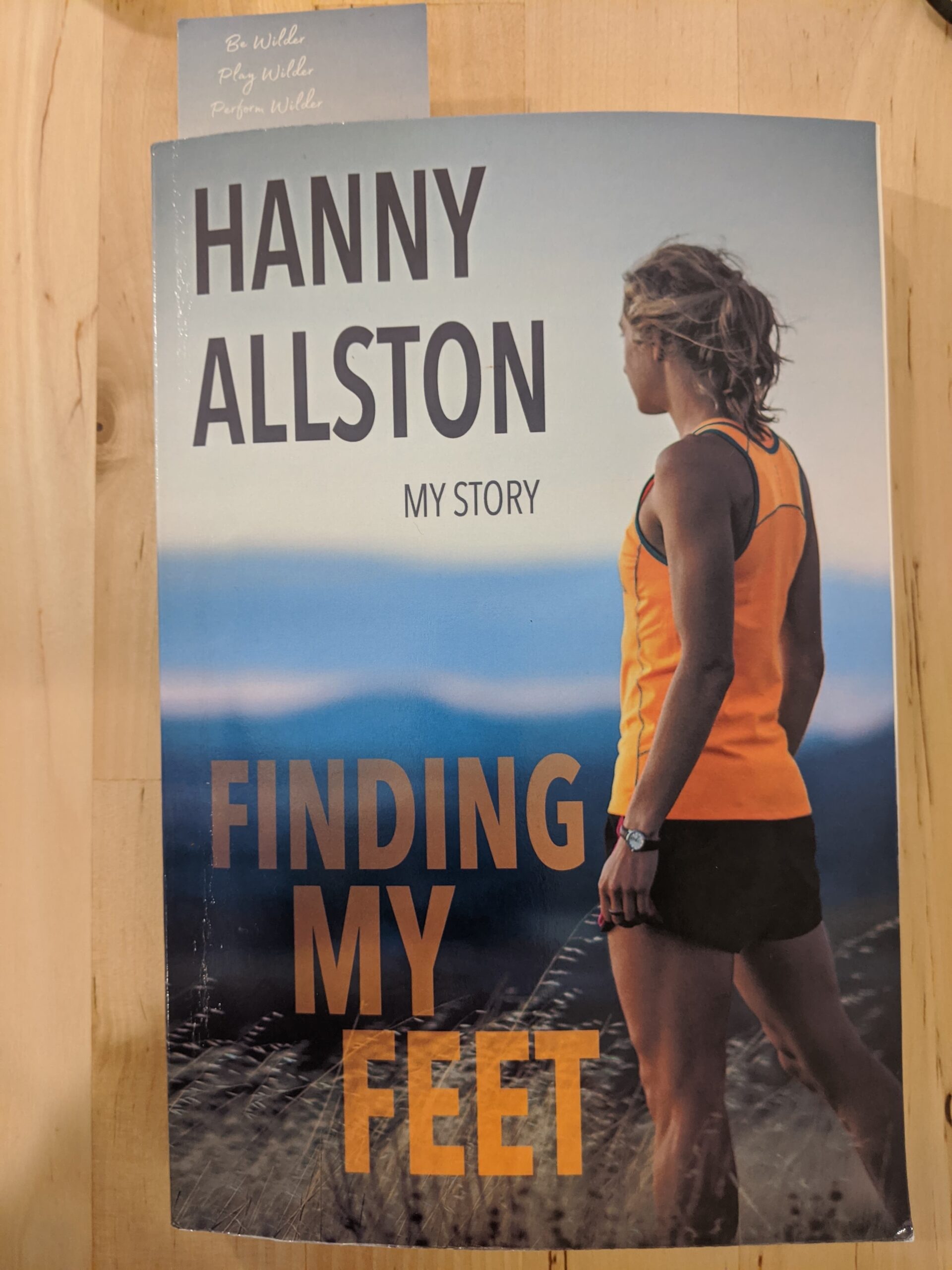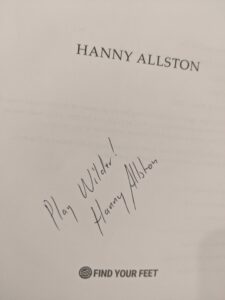Finding My Feet by Hanny Allston – book review

Hanny Allston is a well-known Tasmanian trail and ultra-distance runner who is the only person to have won the Junior Orienteering World Championships and Orienteering World Championship in the same year and remains the only non-European World Champion in orienteering. “Finding My Feet” is her autobiography. While her sporting achievements are impressive Hanny is also an impressive human being and deeply cares for the world and others around her. I purchased a pre-order signed copy of this book because I am a Hanny fan, but I have tried my best to be neutral in this review.
Apart from the Prologue, the book is written conventionally in chronological order, starting with her upbringing with her tightknit family in Sandfly, a semi-rural area just outside Hobart. She writes in delicious detail of her adventures with her brother and other local children, eating berries from neighbouring farms, exploring creeks and fields, and going on camping trips all around Tasmania and mainland Australia with her family. From age 7 to 16 Hanny trained at an elite level as a swimmer and describes how she reconciled the differences between the strict, chlorinated environment of elite swimming squads and her normal life as a child wild at heart (“a child with an impish spirit”). She kept up swimming while attending rogaining and orienteering events with her family, until she found herself on the National Development Orienteering Team which led to her attending the Junior World Championships in Estonia. Hanny describes her orienteering trips overseas in detail including her wins at the 2006 Junior World Orienteering Championships and the 2006 World Orienteering Championships. However, while her sporting achievements are interesting, it is Hanny’s willingness to be open and share her struggles in detail that make the book different from your average sports person autobiography.
Hanny faced some difficult situations from 2005 to 2009 which she then spends years trying to recover, understand and learn from. In 2005 as a 19 year old, Hanny had just had an ankle reconstruction, her father had attempted suicide, and she was about to be told she could not defer her medical degree further so had to sit her medical exams a few days after her father’s attempted suicide. Her parents eventually separated, and in 2006 with her mental health rapidly deteriorating Hanny moved out for the family home and into a share house in Hobart. In the ensuing years she quits medical school, studies teaching in New Zealand, and finally returns to Australia where in 2008 she starts her own business ‘Find Your Feet’, to teach people to run and play. It is at this time, as a 24-year-old that she starts on the journey to treating her anorexia.
Hanny writes openly about her mental health struggles, and in the process, opens herself up to criticism from others. Anyone who has suffered from a mental illness will understand how difficult it is to make sense of the mental illness yourself, and sharing it with close individuals is hard enough. Writing in detail about a mental illness in a memoir is very brave.
As well as writing about anorexia, Hanny covers a number of other topics that impact mental health including:
1. Self-compassion;
2. The danger of defining ourselves by what we do;
3. The achiever mindset;
4. “Be more, do more”, not “do more to be more”;
5. Success and happiness as processes;
6. Comparing your old self to your new self and controlling the inner critic;
7. Letting your heart lead the way;
8. Embracing femininity; and
9. Trusting your abilities and vulnerabilities.
Hanny details how her understanding of these topics developed as she grew into adulthood. Sometimes her realisations were made through intrinsic self-reflection, other times through the assistance of health professionals. If you are looking to better understand your own journey, or are on a path of self-development, Hanny introduces several ideas that you might look into further for yourself.
You may not enjoy this book if you cringe at metaphors and the overuse of themes. I usually don’t appreciate having themes repeated so obviously, but Hanny’s voice and the way she writes is so raw and genuine, I soon started enjoying the repetition of the themes. Hanny also loves using adjectives and it is hard to find a noun without an adjective attached. This slows the pace of reading, which can be frustrating at times. However, the book is an autobiography, a genre that is meant to be written in a way that represents the individual, and as I progressed reading I came to realise that this is Hanny’s writing style, and it added to rather than detracted from the autobiography.
If you are looking for a detailed account of Hanny’s sporting achievements, that is not what “Finding My Feet” is about. Hanny really focuses in on her personal development not her achievements, and this is a story to relate to and learn from.
Thank you Hanny for sharing your life with such honesty. For being vulnerable and potentially opening yourself up to criticism so that your story can help others learn and grow.
